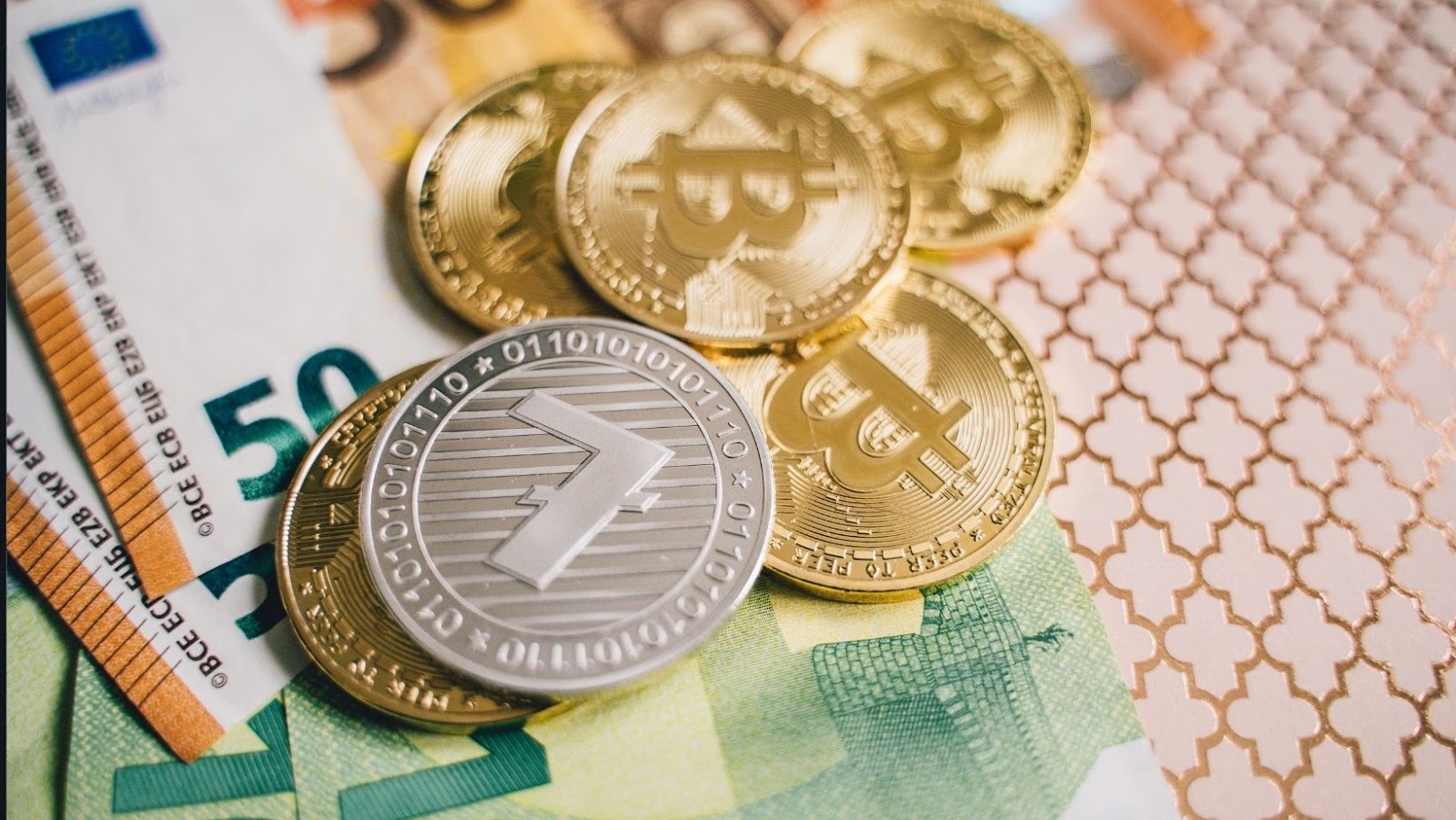
Recently, South Korea has moved to invest heavily in the metaverse, a digital world that combines virtual and augmented reality with artificial intelligence and 3D environments.
In doing so, it provides a working example for other countries to follow and learn from. Therefore, this article will take a closer look at the potential benefits that South Korea can gain from investing in the metaverse and how the concept can be implemented in other countries.
Definition of metaverse
Metaverse is a concept of a virtual world realized in persistent space, which is accessible and navigable by a variety of users through devices such as Wearables, AR/VR glasses/headsets, and PCs. It is an open-source digital environment that allows users to connect in real-time and engage in various activities. The metaverse can include social networks, gaming environments, educational settings, digital stores, and more.
It is expected to be a new form of cyberspace where users inhabit virtual spaces that are hosted on servers located across the Internet. To access the metaverse and its content, users must partake in its fictional universes using avatars – interactive representations of themselves in this alternate reality. Once immersed in the metaverse, people can create content (including objects and environments), transact with each other, develop relationships within its virtual worlds, or simply explore what it offers.
South Korea’s focus on the metaverse
The South Korean government has recently displayed increased interest in technological advancements, particularly virtual worlds known as “metaverses.” South Korea’s embrace of emerging technology stems from its ambition for international economic leadership and its efforts to become a global leader in the digital revolution.
Metaverses are immersive, 3D, virtual spaces accessible through an internet connection and a VR headset. They have complex algorithms that can support a growing number of users at any one time and observe their interactions with each other for assessment purposes. Examples of metaverses include Second Life, Sansar, PlayStation Home and Minecraft Earth.
The Korean government believes that embracing the metaverse could help them achieve many goals, from economic development to preparing its people for industry 4.0 technologies. It has already invested significant resources into research projects that explore these possibilities. Additionally, the KTC group (Korea Technology Committee) established, which oversees efforts to make technology more interactive and interconnectible within a given environment or region – most notably in real estate investments designed to facilitate future growth within the 3D space.
For example, Every Space Inc., one of South Korea’s leading virtual real estate companies backed by KTC funding, is transforming traditional office buildings into hybrid shared workspaces that manage both physical and online assets simultaneously – providing access to an increasingly seamless online ecosystem with measurable success metrics such as user quantity or quality of engagement.
South Korea’s focus on metaverse provides great potential for beneficial outcomes from services like increased resources for developing economies or fostering closer connections between distant countries through shared experiences in 3D space – applications which go well beyond simply hosting large-scale multiplayer gaming events or contributing toward cryptocurrencies’ decentralizing effect on global finance power structures.[3]
Benefits of the Metaverse
South Korea is betting on the metaverse with its new Digital New Deal initiative to drive economic growth. The metaverse is a digital world that is created by combining the Internet with virtual reality, helping foster a new type of economy with its potential to increase collaboration and productivity.
This article will look at the potential benefits for South Korea, and how it could provide a blueprint for other countries looking to take advantage of the metaverse.
Improved economic opportunities
The metaverse could open up a new range of economic opportunities for South Korea. By investing in the infrastructure and technology needed to build a metaverse, South Korea can position itself as an attractive destination for businesses looking to explore new markets and customers. Through the metaverse, companies will be able to quickly launch immersive, sophisticated campaigns and interactive customer experience that offer captivating products, services, experiences and more.
The metaverse would also give South Korea an edge in the global market in terms of manufacturing. By streamlining the design cycle through metaverse-enabled 3D printing, augmented reality (AR), autonomous robots and artificial intelligence (AI), companies can reduce development costs while still being able to create products that are tailored to customers’ needs quickly. The potential benefits would also extend beyond just manufacturing – AR and AI could help accelerate research and improvement of existing processes or invent entirely new types of products that tap into fresh customer needs.
Finally, with advancing technology such as blockchain, businesses within the metaverse could create innovative new means of payments or reward systems designed to fit the needs of their customers or target audience. This could unlock a whole range of new economic opportunities that were previously available due to traditional methods of payments or rewards needing to be easier and more affordable for small businesses to utilize effectively.

Increased global visibility
South Korea’s embrace of the metaverse could result in the country becoming more visible on a global scale. Through the metaverse, cultural and artistic content can become accessible to other countries with ease. This increases opportunities for South Korean artists to showcase their talents, allowing them to reach a much wider audience than before.
In turn, this can promote international recognition for South Korean talent and culture, heightening the country’s global visibility. Furthermore, South Koreans can have better access to foreign art and culture too through immersive virtual experiences in the metaverse that bring different cultures together. This creates a great platform for South Koreans to form meaningful connections and expand their global network beyond borders and countries.
Improved education
South Korea is increasingly investing in and utilizing the metaverse for various applications, including education. By adding a visual-focused layer to online learning, the country allows its citizens to become more accustomed to spaces like the metaverse and its associated technology — VR, AR, and MR.
The country’s Learning by Doing (LbD) program encourages students to take part in different models or projects within the virtual world. This includes activities like 3D modelling and programming, as well as other interactive tasks related to gaming and multimedia. Through these experiences, students are exposed to creative ideas while exploring diverse subject material that stretches beyond the traditional classroom structure.
This immersive approach also allows teachers and trainers to measure engagement levels accurately through interaction data captured within the virtual space. Since there is no physical presence necessary between educators and learners, this environment can accommodate lessons facilitated by remote tutors.
In addition to virtual educational programs being expanded in South Korea due to advancements in metaverse technology, innovative facilities are also emerging across the nation designed specifically for teaching metaverse concepts onsite through experiential learning experiences. It could be argued that many of these state-run educational initiatives have potential benefits outside of South Korea’s borders if adopted elsewhere.
South Korea’s Strategy
South Korea is investing heavily in the metaverse, and is betting that this immersive digital world will provide an economic boost. With South Korea’s commitment to developing the metaverse, it could provide an opportunity for other nations to follow suit and benefit from the technology.
This article will explore South Korea’s strategy and how it could provide a blueprint for other nations.
Investment in infrastructure
South Korea has made tremendous investments in digital infrastructure to help build the metaverse. This includes developed fiber-optic networks and government programs designed to foster innovation and infrastructure development.
South Korea is also creating platforms that support each stage of the metaverse lifecycle, from content creation to monetization and distribution. These tools are designed to encourage creators, entrepreneurs, investors, and businesses to become involved in building a vibrant virtual world. To this end, South Korea has established hubs for collaboration between the public and private sectors, as well as initiatives such as its Global Challenge program, which provides funding for early-stage startups focusing on new technology such as AI and 5G related products or services.
Further investment plans include hosting investment conferences that include topics such as augmented reality (AR) applications; organizing incubators which provide startup companies resources they need in specific sectors related to the metaverse; providing education programs at universities focused on game development; collaborating with global industry leaders in areas such as game engine development, AI development; researching how to leverage open source platforms; leading efforts in international standardization of the safety of online services; and developing strategic initiatives related to AR/VR/XR industry. As South Korea continues its commitment towards technology advancement, citizens can look forward to opportunities for potential job creation associated with the impending growth of the metaverse sector.
Fostering of public-private partnerships
South Korea’s involvement in the metaverse is supported by the government through its institutionalization of public-private partnerships. One example is the National Digital Content Promotion Agency, which serves as an intermediary for research and development, investment, and policy between ministries, business associations and developers. These collaborations create public-private initiatives that develop legal tools to protect citizens within the metaverse, allowing them to confidently explore this virtual world.
South Korea has created several task forces and collaboration hubs dedicated to concretizing the opportunities involved in this digital service ecosystem. The Cross Stage Collaborative Team is tasked with improving data liquidity across development stages of projects while acting as a bridge between ministries and stakeholders related to architecture development. Digital Net Valley helps foster further developments of augmented reality industry including 3D sensing companies, by providing resources and support for startups such as planning seminars or connecting venture capitalists with suitable investments.
South Korea’s approach emphasizes partnership opportunities between industry participants to facilitate collaborations that allow businesses access to models beyond their traditional offerings or competitive space in differentiated markets enabled by public investment. Such measures ultimately support South Korea’s vision for long-term success within a more rapidly evolving knowledge economy.

Promotion of the metaverse as a platform for innovation
South Korea is actively encouraging the exploration and development of the metaverse. In 2019, it established a National IT Industry Promotion Agency (NIPA) to focus on stimulating the country’s technological and creative sectors. The agency is designed to promote South Korea’s digital economy as a platform for innovative technological solutions in many different fields, including entertainment, education and healthcare.
More recently, NIPA announced plans to develop a “Virtualised Idea Community” that will provide tools and resources for local businesses, developers and researchers looking to explore virtual reality (VR) technology in their work. This initiative could be an important step towards promoting the use of VR technology in South Korean startups and companies.
In addition to these initiatives, NIPA also provides resources for companies interested in developing technologies for the metaverse industry. The agency provides grants for innovative projects that seek to take advantage of virtual worlds such as Second Life or Metaverse World Championships (MWC). Through these grants, NIPA supports groundbreaking work that has implications far beyond South Korea’s borders — providing a blueprint for other countries looking to make use of this technology.

Challenges
South Korea is betting big on the metaverse as a means of driving economic growth, but there are a lot of challenges that must be overcome in order for this bet to pay off.
This section of the article will look at some of the biggest challenges that South Korea is facing in its pursuit of the metaverse. We will discuss potential solutions, as well as the ways in which South Korea’s efforts could provide a blueprint for other countries and regions looking to benefit from this technology.
Ensuring data privacy and security
South Korea’s rich history in engineering and technology has built the nation into a leading player in advanced technology. As the country moves forward to the metaverse, one of the major challenges lies in protecting user data privacy and security. With countless virtual environments interacting online, drivers such as data privacy and security should be discussed alongside the opportunities associated with the transition to the metaverse.
One example of how South Korea is taking steps towards ensuring data privacy is through its Personal Information Protection Act 2020, which makes it mandatory for businesses to inform citizens how their personal data is being collected and used. The government also announced a plan to invest $2 billion USD in cyber-security over five years that includes training cybersecurity professionals, strengthening measures against cyber attacks, and developing successful strategies for protecting citizen’s personal information from illegitimate access or usage.
Additionally, local authorities have implemented regulations requiring verification processes to confirm user identities when signing up for services within the metaverse. All these actions taken by South Korea exemplify their commitment to protecting individuals’ privacy as well as enhancing security features on their platforms.
Overcoming technical and cultural barriers
South Korea is making significant investments in the metaverse to help drive growth and development, both at home and abroad. However, several technical and cultural challenges are in the way of widespread adoption. From data privacy concerns to rapidly changing technology standards, South Korea faces obstacles that must be addressed before its ambitious plans for a shared virtual world become reality.
Data privacy: One of the main technical hurdles of the metaverse is data privacy and security. South Korean regulations require startups working with sensitive personal information to employ robust measures for protecting user data, including encryption and segmentation. As such, companies have been investing heavily in secure technologies that comply with these guidelines while still offering users a seamless virtual experience.
Changing technology standards: As new advances in technology are developed, so too must corresponding measures be updated to ensure interoperability across different platforms and systems. This requires startup founders to stay up-to-date on advancements in order to remain competitive within the tech landscape.
Cultural differences: Overcoming cultural barriers is another key challenge for anyone looking to establish roots in foreign markets like South Korea’s tech-savvy youth culture. The country’s well-established mobile gaming industry remains highly popular among younger consumers; however, newer generations may not immediately embrace more immersive experiences due to their age or unfamiliarity with this cutting-edge technology. As such, companies need to find creative ways of introducing the concept while respecting traditional values and appealing to the key demographics they are targeting.
Through creative problem-solving, dedication, and collaboration on both local and international levels, South Korea may be able to create a blueprint for other countries looking at entering into this rapidly advancing field of mixed reality technologies in 2021.
Managing the complexity of the metaverse
The concept of a metaverse is relatively new, and managing its complexity presents numerous challenges. Implementation requires coordination across different sectors and departments in government, innovative business models to support it, and upskilling for individuals on how to use the various elements.
In South Korea, cryptocurrency exchanges are required to add national identification numbers to user accounts, making the transactions more traceable. This puts South Korea at an advantage when trying out a novel type of financial instrument – cryptocurrency or tokens – within its newly created metaverse ecosystem.
The privacy and security implications of this experiment will also need close monitoring. Creating digital systems linked to real-world identities should always be done cautiously since users do not have control over the privacy settings applicable after their virtual avatars become part of multiple data systems. Moreover, in light of the recent increase in cyber attacks over the last decade, a robust cybersecurity protocol is essential for protecting user data and securing transactions inside virtual worlds.
Finally, policymakers need to understand that other jurisdictions may adopt very different approaches when launching such initiatives. Global alignment between regulators is going to be key if metaverses become as large as industry players envision. Understanding who makes decisions around consent (for use cases ranging from personal data governance through in-game purchases), what conditions apply when using third-party services (such as cloud computation platforms or streaming audio-visual content), and which assets are supported by these would go a long way in enabling interconnectivity between different platforms.
Conclusion
As South Korea continues to look at ways to leverage the metaverse, the experience in the country could provide a blueprint for other countries looking to use metaverse technology.
With the country exploring how to use the metaverse to promote tourism, create new job opportunities, support education and the arts, and more, there is potential for South Korea to become a hub of virtual reality innovation.
South Korea’s unique approach
South Korea has been a digital frontrunner for decades and even before the rise of the metaverse, the country was positioning itself as a virtual and augmented reality leader. By allocating significant public and private sector resources into research, development, and commercialization, South Korea is aiming to leverage digital technology to create economic value.
To remain competitive in this ever-evolving landscape, South Korea invests heavily in several core components of the metaverse: artificial intelligence (AI), 5G networks, digital twin technology, blockchain information management systems, 3D computer graphics, and other cutting-edge technologies. This bold strategy has caught on with businesses large and small in the region looking to stay ahead of the curve.
With its comprehensive approach—combining ground-breaking investments in micro-ecosystems at both national and local level—South Korea is uniquely well-positioned to become an early adopter of our virtual future. Not only that – it could provide a blueprint for other countries seeking opportunities while embracing this game-changing technological shift – making it a trendsetter not just as an early adopter of tech but also as a cheerleader for what’s coming next.
The potential of the metaverse
The potential impacts of a global metaverse on South Korea’s economy, culture and society are tremendous. Such services can potentially turn the country into a powerful global digital hub where new business models, services, and even social spaces can be created. It could be a way for South Korea to become a leader in the global digital economy.
The metaverse could create immense economic value for South Korea by providing opportunities for developers, content creators, and service providers and educational opportunities for students and scholars. However, the success of the technology will depend on how quickly it can be adopted by users worldwide, including in South Korea. For maximum impact, South Korea is betting on building an inclusive infrastructure that will allow anyone with an internet connection to access virtual experiences from anywhere in the world.
The government has taken steps to ensure its citizens are ready for this new reality by launching initiatives such as Virtual Enterprise Republic (VERK), designed to bridge physical and virtual worlds through startups and innovation-based training programs. It has also established Global Angel Investment Network Centers nationwide to stimulate venture capital investments in new technologies such as metaverse based applications. Additionally, South Korea’s Research Institute recently held its first virtual reality-focused hackathon competition from October 11–13 focusing on finding solutions for various challenges faced by society today.
In conclusion, if successful in its efforts to establish itself as a strong digital economy powered by virtual activities, South Korea will likely provide a blueprint that other nations can follow and benefit from. Over time we may see virtual experiences harvested all over the world that bring our societies closer together than ever before, reducing distances not just between people but between nations too – ultimately creating a better world for us all.
A blueprint for others
South Korea is positioning itself as a leader in Metaverse technology and its development has the potential to provide immense benefits to both the nation and the world. South Korea’s investment in the metaverse could be seen as a blueprint for other countries to pursue their own technological ambitions. The country is embracing open source technology and creating an environment conducive to collaboration between startups, large companies, and government entities—paving the way for digital innovation.
Furthermore, South Korea’s commitment to research, development and education of Metaverse-related technology is driving a culture of continuously improving immersive technologies. This could revolutionize how we work, shop, play and interact with each other online, enhancing socialization while eliminating physical effort often needed to get things done. The development of Metaverse tech also has potential applications in healthcare associated with telemedicine, as well as tourism and hospitality offerings that are already being explored by some industry players within South Korea.
By investing in a metaverse industry within its area experience economy – South Korea is showing that it remains committed to cutting edge technological advances that have strong implications for industry and creative sectors alike – making it an ideal place for visionaries looking for next generation innovation. Not only does the country encourage investment from global conglomerates such as Sony, but it also provides incentives for start-ups aiming to develop technology utilizing Metaverse—making their ideas become reality in a way exclusive havens may never be able too.
tags = South Korea, metaverse, blueprint, $177.1 million, Digital New Deal, Ministry of Science and Information and Communication Technologies, Lim Hyesook, korean nfts max giantstepleebloomberg, Meta, cryptocurrency and non-fungible tokens (NFTs)





